But . . . what if they aren't masks?
[Image by Laurie Lipton from her amazing Day Of the Dead series.]

But . . . what if they aren't masks?
[Image by Laurie Lipton from her amazing Day Of the Dead series.]
You left her standing at the altar, all those years ago — tomorrow night she will be back for her revenge . . .
[Once again, the image is by the stupendously creepy Travis Louie, via Femme Femme Femme.]
At a recent rally, Sarah Palin was reading through one of her scripted attacks on Barack Obama when someone in the audience yelled out, “. . . and he's a nigger!” Palin looked momentarily flustered, paused, stumbled over a word, then soldiered on bravely as though nothing had happened.
I'd like to think that you or I, if we'd had the microphone at such a moment, would have stopped, chastised the woman in the crowd for her remark, perhaps asked security to have her removed from the hall, reminded everyone that we didn't approve of such language and didn't want the support of those who use it. But of course Sarah Palin and John McCain do want the support of people who use the n-word — that's the whole point of their rhetoric painting Obama as a not-quite-American other. They just don't want people to shout the word out at them when the TV cameras are rolling — they want at least a cosmetic firewall between themselves and the dark thoughts they're summoning up in people's hearts.
Bad witch, Sarah.
But with Halloween so close now, let's not forget that there are good witches, too . . .
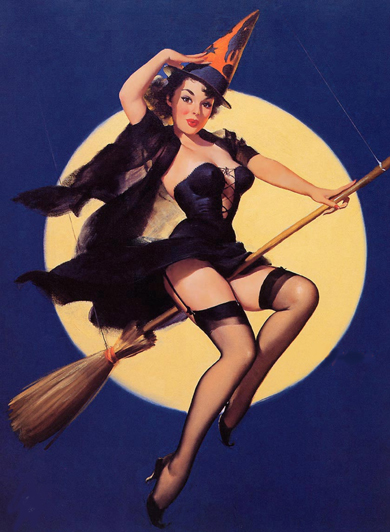
Trick or treat?
The spirits are gathering . . .
[Image by the stupendously creepy Travis Louie, via Femme Femme Femme.]
My nephew Harry, 15, is a filmmaker. He makes mostly short comic films of a satirical or surreal nature. You can see a selection of them at his YouTube page 'Tis But A Flesh Wound.
This cruel and cynical film made me laugh, though I'm not proud to admit it:
Love Is A Wonderfully Great Thing
Harry also edits clips from movies to unlikely songs. Here's a piece which cuts together shots from the films of his favorite director, Stanley Kubrick, to the song “Subterranean Homesick Blues” by Bob Dylan:
It's quite cool.
In his brilliant book Raising Cain, a cultural meditation on blackface minstrelsy, W. T. Lhamon, Jr. points out that minstrelsy is founded on an admiration for and celebration of black charisma, specifically the charisma of black cultural style. This essentially positive aspect of the phenomenon has persisted through time, even as minstrelsy simultaneously attempted to belittle and marginalize black culture — to keep it contained.
Part of the desire to contain it was undoubtedly inspired by anxiety arising from the sexual appeal of black charisma — the fear that white women might be attracted to it. Minstrelsy as a form could not negotiate and neutralize this anxiety on its own — other cultural strategies were required. One such strategy was the myth of black male aggressiveness towards white women — the notion that black males possessed an instinctive desire to ravish white women.
For various and obvious reasons there is no significant history of sexual assaults on white women by black males in America — and certainly no history of it even remotely comparable to the history of the sexual exploitation of black women by white males. The myth has a psycho-sexual origin. It is always associated with the fear that black political power will encourage sexual assaults by black males on white women, and often assumes that the secret agenda of black political power is “miscegenation”.
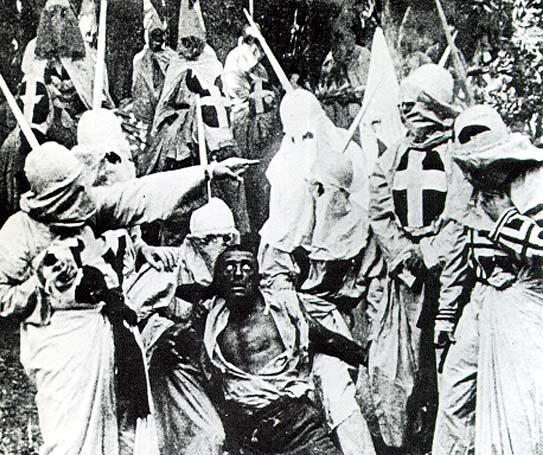
The myth is usually presented in pseudo-historical terms. The Birth Of A Nation, a fiction film from 1915, asserts its historical authenticity in presenting the campaign for the political enfranchisement of blacks during Reconstruction as motivated primarily by the desire of black males to ravish white women. The film draws on a body of now discredited scholarship about Reconstruction which essentially promoted the same mythology.
We need to understand this mythology in order to understand the recent incident in Pennsylvania in which a young white woman claimed to have been beaten and sexually assaulted by a tall black man because of her support of John McCain. She's probably never seen The Birth Of A Nation, but its mythology is still alive in the culture — she clearly drew on it when concocting her false story, assuming it would be plausible to many, as indeed it was.
News organizations reported it widely and immediately, before it could be confirmed. John McCain's campaign instantly assumed it was true and began to publicize it. McCain and Palin even went so far as to call the woman to express their sympathy. All of this occurred before the actual facts had been established, and in spite of the fact that the story was objectively implausible.

The woman said her black attacker had carved a “B” on her face, for “Barack” — but the letter was carved backwards, as though it had been done in a mirror. The woman also had a reputation for being emotionally unbalanced, and the supposed attack occurred at a time when Obama was kicking McCain's butt in the race, with the overwhelming support of white voters — hardly the time one would expect spontaneous eruptions of black rage against whites.
But the story “felt” true to many — because it reprised a mythological script buried deep in America's cultural psyche, a script in which black political power is forever linked to sexual assaults by black males on white women.
Try thinking of Todd's “script” with different racial actors. Suppose she'd been a black woman who said she was attacked by a tall Irish-American with flaming red hair who, enraged by an Obama sticker on her car, carved a backwards “McC” on her cheek in the course of beating, robbing and sexually assaulting her. She would probably have been sent immediately to a hospital for psychiatric evaluation. News organizations would not have rushed to disseminate the outlandish story before having it confirmed.
I'm also guessing that Todd's story would have been greeted with extreme suspicion by all parties if it had not included a component of sexual assault — the sine qua non of the Birth Of A Nation script.
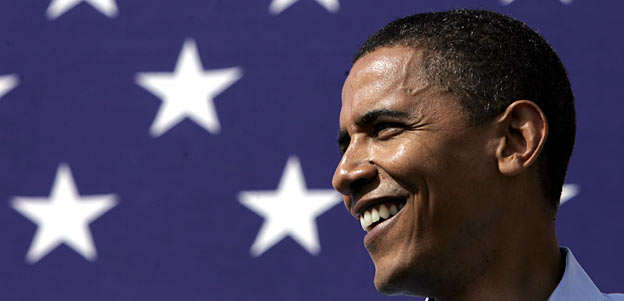
I got an e-mail from MoveOn.org asking me to post the text below on my blog. I don't think MoveOn.org has the slightest idea whether or not I have a blog — I think they assumed that so many people do have blogs that a message aimed at their entire e-mail list would hit enough bloggers to be worth the shot.
In any case I'm happy to comply with their request:
TOP 5 REASONS OBAMA SUPPORTERS SHOULDN'T REST EASY
1. The polls may be wrong. This is an unprecedented election. No one knows how racism
may affect what voters tell pollsters—or what they do in the voting booth. And the polls are narrowing anyway. In the
last few days, John McCain has gained ground in most national polls, as his campaign has gone even more negative.
2. Dirty tricks. Republicans are already illegally purging voters from the rolls
in some states. They're whipping up hysteria over ACORN to justify more challenges to new voters. Misleading flyers about
the voting process have started appearing in black neighborhoods. And of course, many counties still use unsecure voting
machines.
3. October surprise. In politics, [a week] is a long time. The next McCain smear could
dominate the news for a week. There could be a crisis with Iran, or Bin Laden could release another tape, or worse.
4. Those who forget history… In 2000, Al Gore won the popular vote after trailing
by seven points in the final days of the race. In 1980, Reagan was eight points down in the polls in late October and came
back to win. Races can shift—fast!
5. Landslide. Even with Barack Obama in the White House, passing universal health care and a new clean-energy policy
is going to be hard. Insurance, drug and oil companies will fight us every step of the way. We need the kind of landslide
that will give Barack a huge mandate.
If you agree that we shouldn't rest easy, please sign up to volunteer at your local Obama
office by clicking here:
If you've got a blog, why not post the above list and link on it? If you don't, why not paste them into an e-mail and send them to all your friends?

The Ventura County Fair is over, the ferris wheel is gone. Yesterday a workman died from a fall in the course of dismantling it. The accident was attributed to the mist.
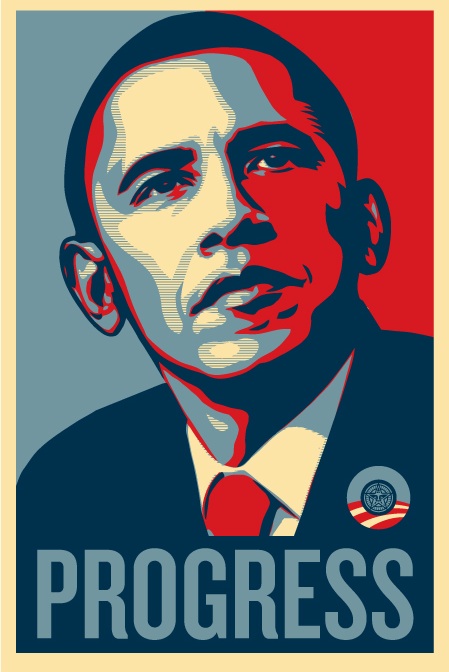
Here's part of a memo an Obama Regional Field Director in North Carolina (where I was born) sent her volunteers last week:
Barack really is
expecting a lot out of us — and there isn't much else for him to do. He
has placed this election in our hands at this point. It's up to us now.
We may never again have our hands on history quite like this again for
as long as we live. That makes each hour so, so precious. We can slack
off, sleep in, and make excuses for the rest of our lives. But today —
and for the next 3 weeks . . . whether we knew what we were getting into
or not . . . we have ended up with people's lives, livelihoods, and dreams
for their children — all dependent on our performance day in and day
out. This is our one chance at history . . . our one chance at perfection.
Our one chance to live forever. So today — breathe this in . . . realize
that your grandkids will be reading about you . . . realize that you will
miss this feeling very, very soon . . . and win every single hour.
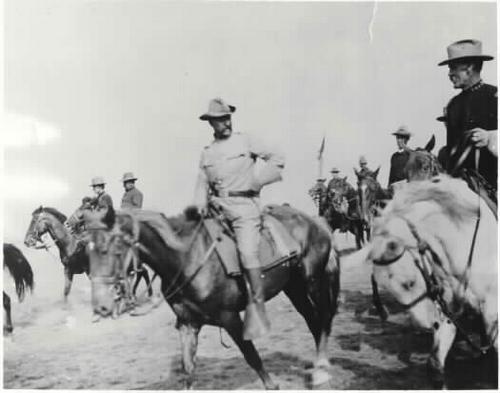
This describes the sort of feeling men in war have. Teddy Roosevelt described his action on San Juan Hill in Cuba during the Spanish-American War as “my crowded hour”. Oliver Wendell Holmes said of his peers who fought in the Civil War “in our
youth our hearts were touched with fire.” It's probably what the early adherents to a new religious revelation feel in their urgency to spread the word. The common ground is effort and risk and sacrifice for others, for a cause outside of and greater than the self. The cause is not Obama's run for political office — it's “people's lives, livelihoods, and dreams for their children.”
The Regional Field Director is talking about that moment in a battle when the generals have done what they can do and it's time for the men to move up to the line and march to the sound of the guns. She's talking about that moment when the disciples leave the teacher and head out to obey his command, “Go ye therefore, and teach all nations . . .”
Obama isn't just running a campaign, he's training citizens for acts of service, crowding their hours with meaning, touching their hearts with fire, giving them a duty and a place among the generations of men, which really is one way of living forever. Obama's success or failure in the campaign, or in the Presidency, is beside the point now.
[With thanks to FiveThirtyEight.com for the memo.]
The sticker on my shirt pocket says it all — I voted yesterday in Clark County, Nevada. It was great — I went late in the afternoon, as advised, to a senior center in a park near my home. There were a fair number of voters on hand but no lines — I was in and out in less than fifteen minutes.
Honoring the convention of the secret ballot, I won't reveal who I voted for, though I will go through the thinking that led me to the choice I made. My criteria for a candidate this year were quite rigorous.
First, I wanted a candidate who was a celebrity. We've had so many Presidents in our history who could never have made even the semi-finals on American Idol that it's getting embarrassing. We need a rock star in the White House.
Second, I wanted a candidate who has such a dim view of America that he's willing to pal around with terrorists. That, to me, shows a refreshing sense of open-mindedness.
Finally, I wanted a candidate who's a socialist — someone who wouldn't blink if called upon to nationalize the American banking system should that ever, God forbid, become necessary. (Oh, wait . . . we've already started nationalizing the banking system — but we could never have done it if the current Republican administration hadn't summoned the courage to live up to its core socialist convictions.)
I think I found my guy, and I hope I'm not giving too much away when I tell you how good it felt to look at that odd name at the top of my provisional ballot print-out and then touch the square on the screen that read “Cast Ballot”.
The surge of American spirit that coursed through my body reminded me that I needed a smoke. I stepped outside into the bright sunshine of a Fall day in the Mojave Desert, lit up a cigarette and thought to myself, “Mission accomplished.” You've got a mission, too, my friends — get it done.
Alfred Hitchcock's silent film The Lodger, from 1927, is wonderfully entertaining, alive with visual inventiveness, with the director's unbridled joy in making cinema. It's not, however, a terribly successful thriller, and thus not a terribly successful film, since a thriller is what it sets out to be.
The problem is the presence of Ivor Novello in the title role — or perhaps the way Hitchcock uses him. Novello was a handsome fellow with a decidedly fey quality. Hitchcock would eventually find ways of using an actor's ambiguous sexuality to disturb an audience, keep it off balance, but he doesn't seem to be trying to do that with Novello. He lurches back and forth between presenting Novello's lodger as an almost inhuman visual icon of menace and mystery (see above) and letting the actor present his own impersonation of a matinee idol. Novello does his best to appear brooding and menacing from time to time but he succeeds only in suggesting a man vaguely distracted and slightly peeved about something.
There's nothing really creepy about Novello's lodger, except that he seems to inhabit a different film than the one Hitchcock is trying to make. He comes across as conventionally, not pathologically, insecure. The unhinged desperation we sense in Bruno from Strangers On A Train or Norman from Psycho is nowhere in evidence. It's really impossible to take Novello's lodger seriously as a suspect in the “golden curls” murders, or as a passionate suitor of the heroine. At the same time, he can't really secure our sympathy as that archetype familiar from so many later Hitchcock films, the innocent man wrongly accused, since we spend most of the film without any clear information about his guilt or innocence.
Still, Hitchcock constructs his movie with relentless, creative imagination as though it had a real villain or potential villain or wrongly accused villain at its center. We can admire and enjoy its brilliance but we can't care about its story — which offers only the most perfunctory kind of suspense, without any subliminal psychological undertow. The film is aesthetically dazzling without being really engaging on any other level.
It's been reported that ACORN, a nationwide syndicate of community organizations, has submitted voter registrations for a number of fictional characters, including some, like Mickey Mouse, who are animated figures. John McCain and Sarah Palin have drawn attention to the serious threat this poses to the American way of life. “Suppose Mickey Mouse shows up at a polling place in Ohio?” Palin asks. “Will his vote be counted? Will a ballot submitted by a cartoon character affect the outcome in this important battleground state?”
When the McCain campaign was asked how an animated character could physically enter a voting booth and cast a ballot, a spokesman directed reporters' attention to the film Who Framed Roger Rabbit?, which demonstrated that cartoon characters could interact with live human beings.
Meanwhile reports have leaked from Sarah Palin's campaign that, if elected, she would urge the establishment of “concentration compounds” for women identified as practicing witchcraft on U. S. soil. According to insiders, Palin intends to allow witches to leave the country voluntarily — however, if they refuse, she believes they should be placed on large barges which would be towed out to sea and sunk. Privately, she blames witches for “cursing her tongue” and preventing her from speaking coherent English sentences on the campaign trail.

Of course, you and I would never use that kind of language about Cindy McCain, even though she's now gone back to taking digs at Michelle Obama, after apologizing for doing so the first time. “I've always been proud of my country,” says Cindy, with her cute little Sarah Palin smirk. Why wouldn't she be proud of a country where a girl can inherit 100 million dollars, bust up a war hero's marriage and become the trophy wife of a pathetic old man who's got a shot at being President? This is, truly, the land of opportunity — if you're very, very lucky and have no morals to speak of.
I'm sure John was just joking when he used the “c” word about his wife. The guy has a sense of humor, after all. Here's a joke he told at a Republican fund-raiser back in the 1990s:
Why is Chelsea Clinton so ugly? Because Janet Reno is her father.
When you and I hear things like that, we just laugh it off, right? The phrase “sick, twisted motherfucker” doesn't even enter our minds.
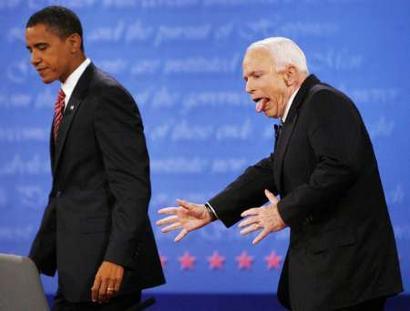
Now jolly John has authorized robo-calls in battleground states reminding people that Barack Obama has “worked with a terrorist”. I guess most of his supporters will be content to let a McCain administration take the appropriate action against Obama after John is elected President — putting the uppity young buck on trial as an accomplice to terrorism, of the domestic variety. Maybe one of those supporters will jump the gun, as it were, and go for some vigilante justice in the meantime — a time-honored tradition in this great country we're all so proud of.
That won't be John's fault, will it? And it won't make Cindy any less proud of America. Things happen to that sort when they step out of line. (Cue cute Sarah Palin smirk.) We're still the shining city on the hill, no matter how much blood runs down the hillside into the valley below — doesn't affect the view from the top of the heap at all.
Early on in the Presidential race I sent a small amount of money to Barack Obama's campaign — in recognition of the fact that, as I believed then, I'd be voting in this election, for the first time in my life, in favor a candidate I really liked rather than against a candidate I hated. That all changed when Senator Obama voted to grant immunity to the big telecoms for conspiring with the Bush administration to violate the Fourth Amendment to the Constitution. I swore then that Obama would get no more money from me and I accepted the fact that I'd be voting for him while holding my nose.
That was before Sarah Palin, before she and McCain began their program of coded hate speech against Obama, which has emboldened many of their supporters to echo the vile suggestions implied in their rhetoric and take them to their logical ends — overtly violent speech and overtly violent threats against a terrorist other. Posing as the leaders of a sheriff's posse bent on cleaning up Dodge they are in fact the leaders of a lynch mob bent on stringing the colored guy up from the nearest cottonwood.
This is not acceptable morally, and will have heinous moral consequences for the nation if their irresponsible tactics succeed in carrying McCain and Palin to the White House.

Consequently I've decided that it's o. k. to send more money to Obama's campaign as long as I make an equal contribution at the same time to the Electronic Frontier Foundation, which is bringing suit to overturn the telecom immunity bill Obama voted for.
You can and should do the same. Contribute to the EFF here. Contribute to Obama here. Do it for the good of the country and the good of your own soul.
[With thanks to the awesome Fluharty for the images above.]
The Biblical tradition of prophecy is not exactly about predicting the future, except in this sense, “If you don't get your act together, God is going to kick your front teeth out.” It's a gentle reminder of the laws of spiritual physics.
A prophet speaks the words of our ancestors, delivers the collective wisdom of millennia, reminds us of the clear and present consequences of immediate choices.
Prophets channel things, crystallize vague signs that portend changes in the weather. Strictly speaking, they don't prescribe, or preach, or even condemn — at least not from a personal perspective. They're just strings that vibrate in the wind.
Being a prophet can't be fun — it requires suspending the prerogatives of the self, wandering around homeless, listening to voices no one else can hear. You have to be a little crazy. When Bob Dylan sings “There's not even room enough to be anywhere” he might well be describing the plight of the prophet.
It's interesting to think of Dylan's voice as prophetic, in the antique sense. In 1964, the Beatles told us how much fun the 60s were going to be. Not long afterwards, in “Like A Rolling Stone”, Dylan told us what the 60s were going to cost us. Not many people listened. The song only made sense in retrospect.
Astonishingly, Dylan, who'd helped a generation grow up, stuck around to help that same generation grow old. Along the way, he kept delivering shocks. He became a born-again Christian and turned himself into a joke for many. In this phase he composed a series of modern Gospel songs that we can now recognize as a brilliant contribution to that particular tradition of American music. In retrospect, again, it seems like a dazzling, moving achievement.
He's never left the road, the hard grind of touring. There were times when he was so wasted on stage that no one could tell precisely what song he was singing. Then he'd rebound, rework his old songs so they seemed brand new again. His last two albums can stand with the best of the work that made his name forty years ago.
At almost every concert over the years he's sung “Blowin' In the Wind” — the song that made it hip for young white kids to support the Civil Rights Movement. He sings it for people who might only be seeing him that one time, who want to say they've heard the iconic song live.
He may have other reasons, too. He may believe that people still need to hear the song — to remember all the questions still blowing in the American wind. Some of them will be answered on 4 November, for good or ill.
In any case, it's a good time to remember where the song came from — an old spiritual called “No More Auction Block”, where Dylan found the general shape of the tune and the inspiration for a new variation on the eternal lament over American slavery and its echoes down through time.
On The Bootleg Series, Vols. 1-3 (actually an official Dylan release) you can listen to “No More Auction Block” sung by Dylan at the Gaslight in Greenwich Village in 1962. He was twenty-one years-old. “Many thousands gone,” the song says, speaking of those who died in chains on American soil, and by extension those who died in the chains of an unjust society, those who died fighting the injustice, or perpetrating it. Dylan doesn't claim to speak for any of them — he's just transmitting their sorrow, their hope, their repentance, just reminding us that their voices are blowing in the wind, and asking us to listen. You can hear Dylan himself listening as he sings the song. It's what prophets do.